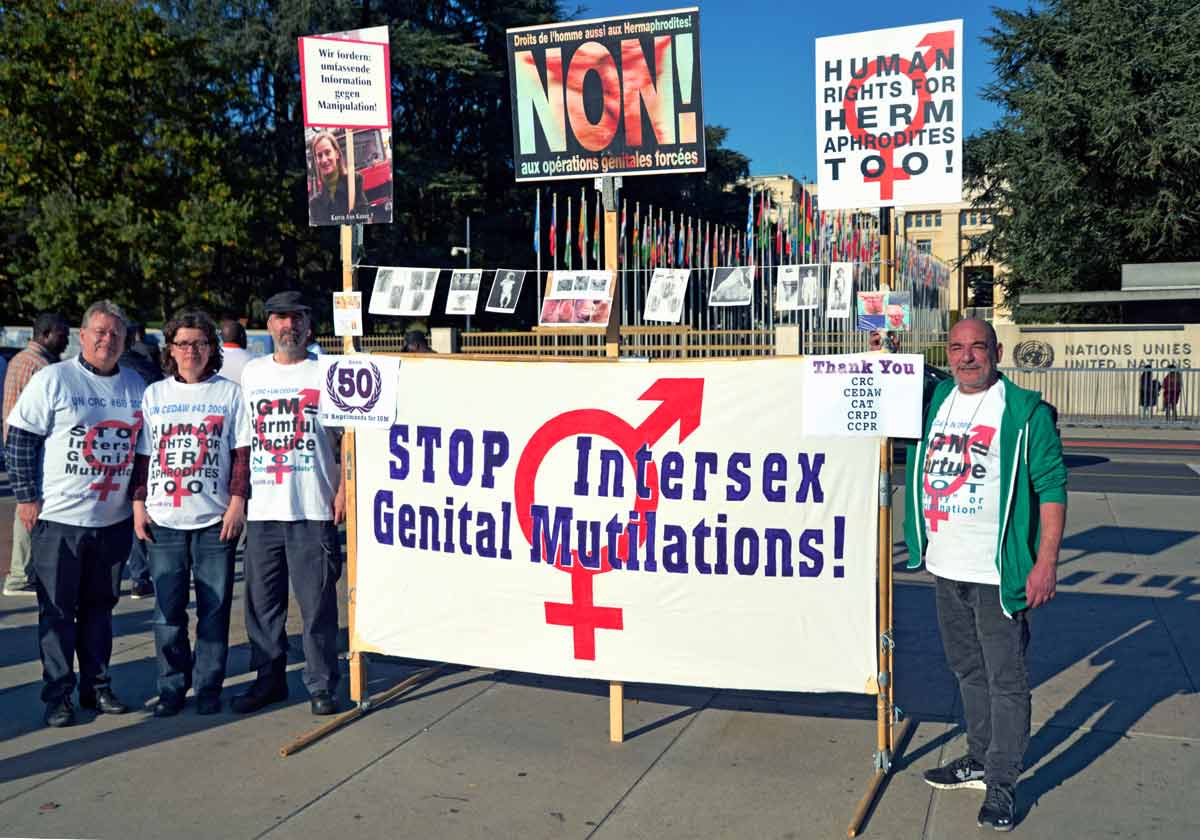 Photo: Geneva, Place des Nations 26.10.2019: Celebrating then soon 50 UN reprimands
Photo: Geneva, Place des Nations 26.10.2019: Celebrating then soon 50 UN reprimands
Today we celebrate Intersex Awareness Day – and 100 UN reprimands for IGM, publishing two relevant documentations!
In May 2014, StopIGM.org submitted its first collaborative NGO report on IGM practices, including a detailed appendix on IGM worldwide (PDF). As a result, in January 2015 we achieved our first UN reprimand for IGM, issued by the UN Committee on the Rights of the Child to Switzerland, then only the second reprimand worldwide. 139 reports later (including 52 collaborative ones), here we go …
As predicted at the beginning of the year, we currently count 104 reprimands from UN Committees to member states around the world for intersex genital mutilation (IGM), all of which explicitly recognise IGM as a serious human rights violation, including as a harmful cultural practice (which also includes female genital mutilation) and cruel, inhuman or degrading treatment (which falls under the absolute prohibition of torture).
To celebrate today’s Intersex Awareness Day 2025, we are publishing two relevant documents:
1. Full List of the first 100 UN reprimands, including UN document numbers, paras, session, related NGO reports and download links for all documents, as well as NGO statistics and acknowledgements:
PDF: https://intersex.shadowreport.org/public/100-UN-Reprimands-Intersex-IGM_UN-Docs-NGO-Reports.pdf
DOCX: https://intersex.shadowreport.org/public/100-UN-Reprimands-Intersex-IGM_UN-Docs-NGO-Reports.docx
2. Full text of the first 104 UN Concluding Observations recognising IGM practices as a serious human rights violation (2011-2025):
PDF: https://intersex.shadowreport.org/public/Full_text_of_the_first_100_UN_Concluding_Observations.pdf
DOCX: https://intersex.shadowreport.org/public/Full_text_of_the_first_100_UN_Concluding_Observations.docx
As broken down in the appendix of the first documentation, no fewer than 82 of the first 100 reprimands for IGM by the UN Committees CRC, CEDAW, CRPD, CAT and CCPR were issued as a result of our (collaborative) human rights work (48 reprimands based on NGO reports from StopIGM.org alone and 34 based on collaborative reports together with local intersex NGOs and human rights defenders).
We thank everyone who made it happen: intersex NGOs, human rights defenders and allies who submitted substantial NGO reports; IGM survivors who contributed their often decisive testimonies; and all UN Task Force and Committee members who listened and recognised the harm, suffering and serious human rights violations caused by IGM.
In our experience, the ongoing UN reprimands have been a key building block for numerous victories for intersex human rights beyond the UN treaty bodies, including the 2016 UN, COE, ACHPR, IACHR Joint Statement, the 2025 OHCHR Report, the 2025 EU FRA Report, and the 2025 COE Recommendation, which all specifically call for a prohibition of IGM practices, as well as sanctions for perpetrators and redress and compensation for IGM survivors.
After achieving 100 Concluding Observations on IGM, we will shift our focus from quietly submitting as many viable NGO reports as possible to other things. We therefore hope above two documentations will be a helpful resource for future intersex advocates to reach 200, 300, … Concluding Observations. Also, we are happy to share our expertise and consult anyone wanting to submit a substantiated NGO report on IGM.
Wishing you all a happy and feisty Intersex Awareness Day!
See also:
• ‘Only the Fear of the Judge Will Make IGM Perpetrators Change’
• “Harmful Medical Practice”: UN, COE, ACHPR, IACHR condem IGM
• UN Committee for the Rights of the Child (CRC): IGM = Harmful Practice + Violence
• UN Committee against Torture (CAT): IGM = Inhuman Treatment or Torture
• UN Women’s Rights Committee (CEDAW): IGM = Harmful Practice
• UN Committee on the Rights of Persons with Disabilities (CRPD): Violation of Integrity
• UN Human Rights Committee (HRCttee) condemns IGM Practices
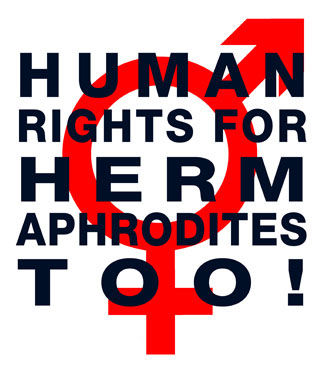
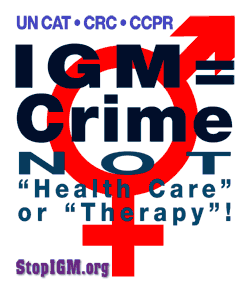


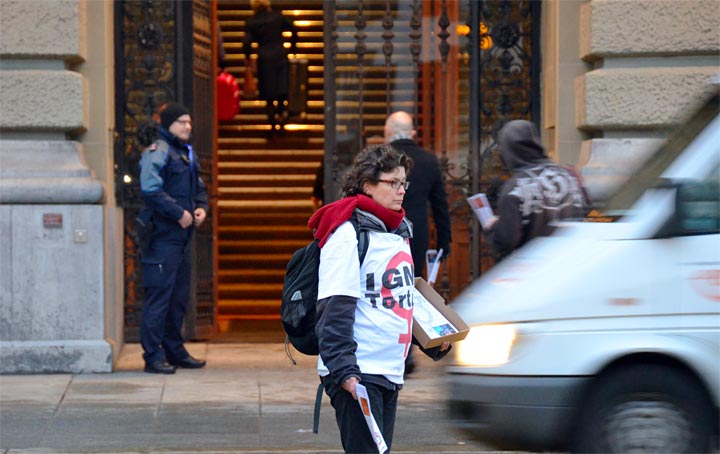
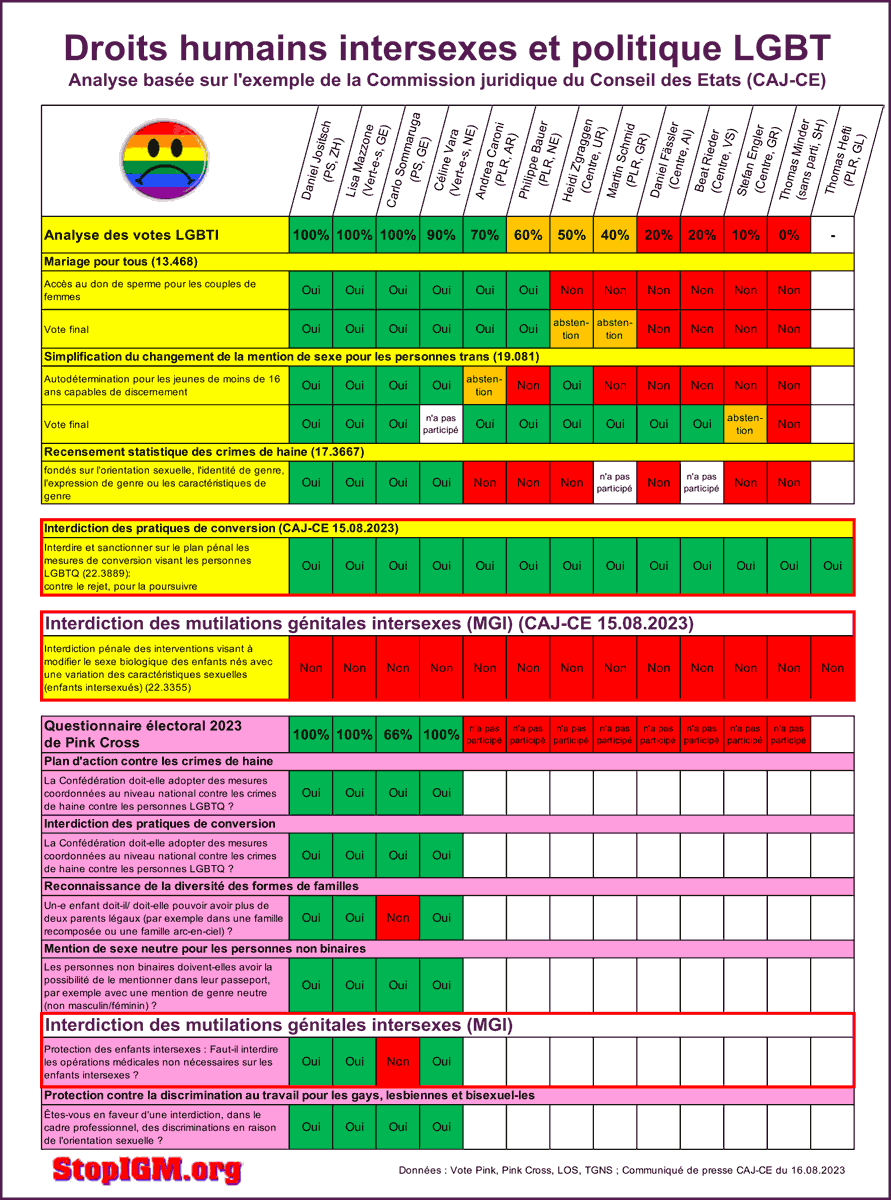
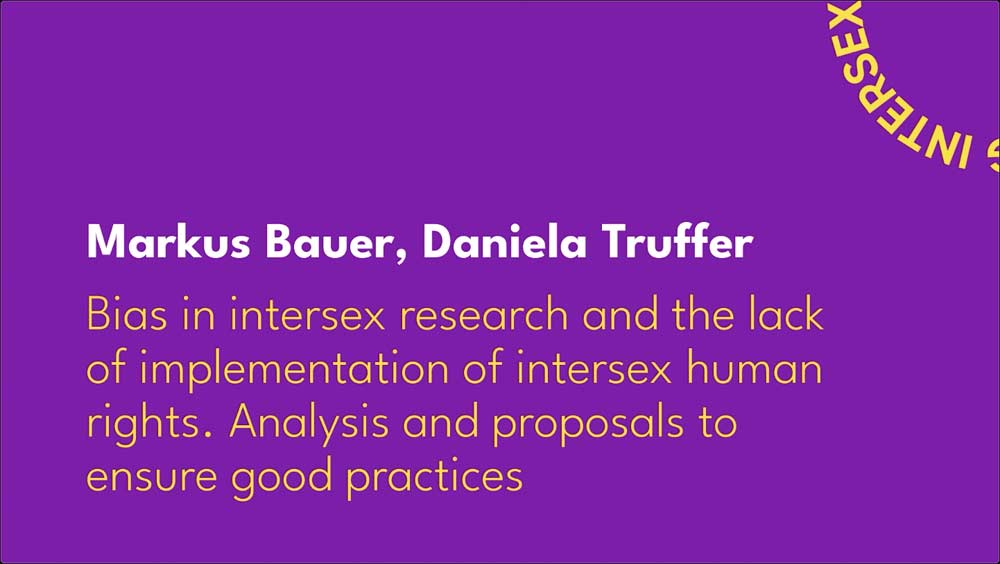

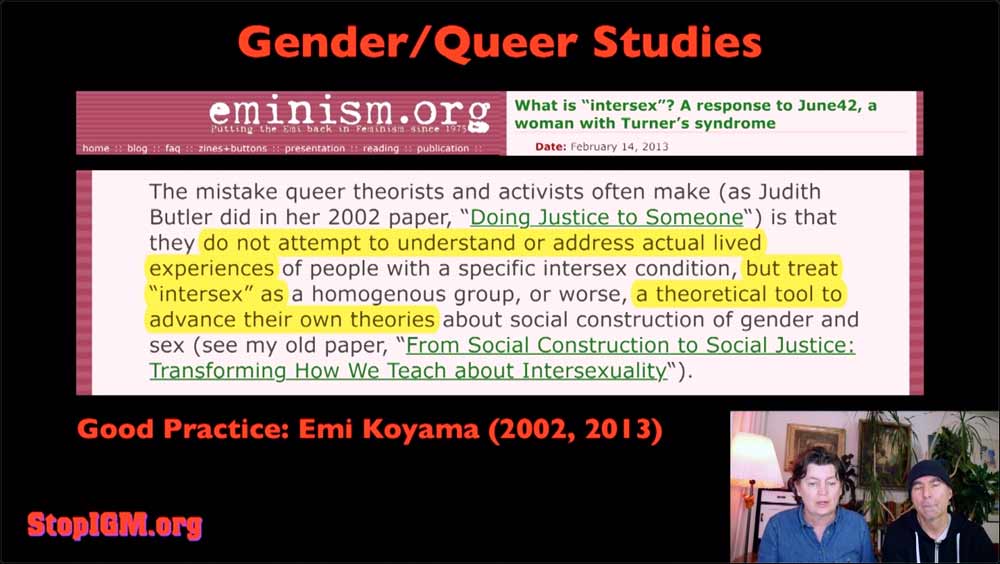
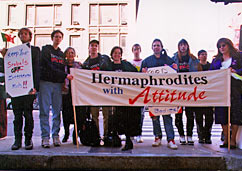
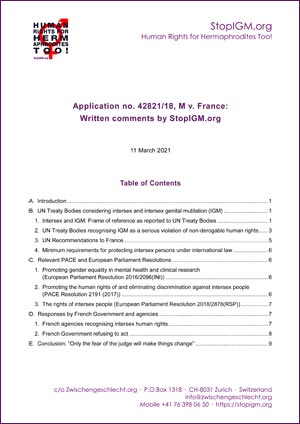
 CCPR 131st Online Session, 02.03.2021, 16:04h: Opening Statement by Head of Finnish Delegation, Krista Oinkonen (Ministry of Foreign Affairs).
CCPR 131st Online Session, 02.03.2021, 16:04h: Opening Statement by Head of Finnish Delegation, Krista Oinkonen (Ministry of Foreign Affairs).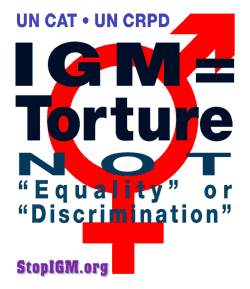

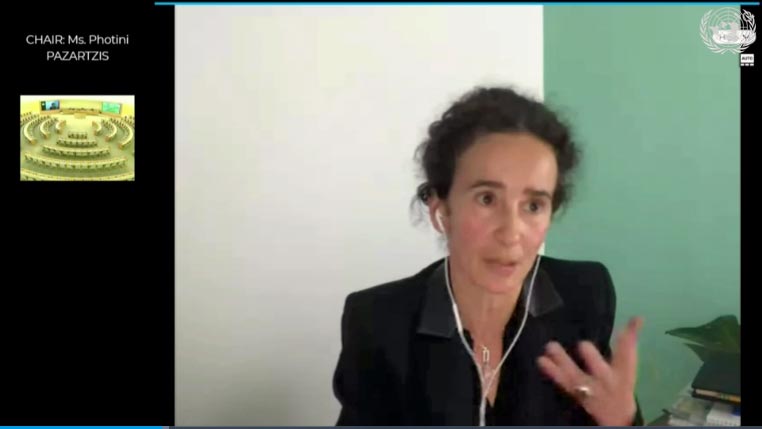

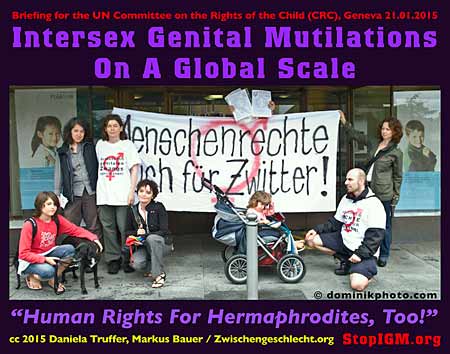
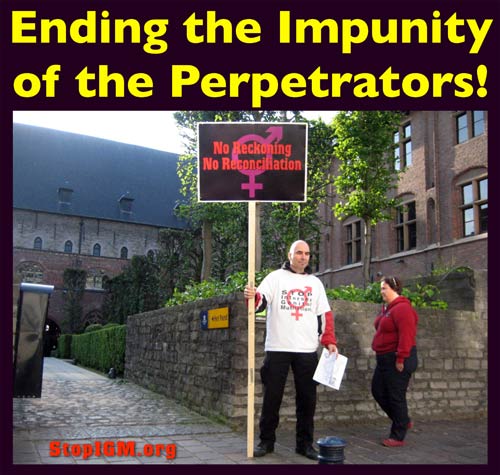
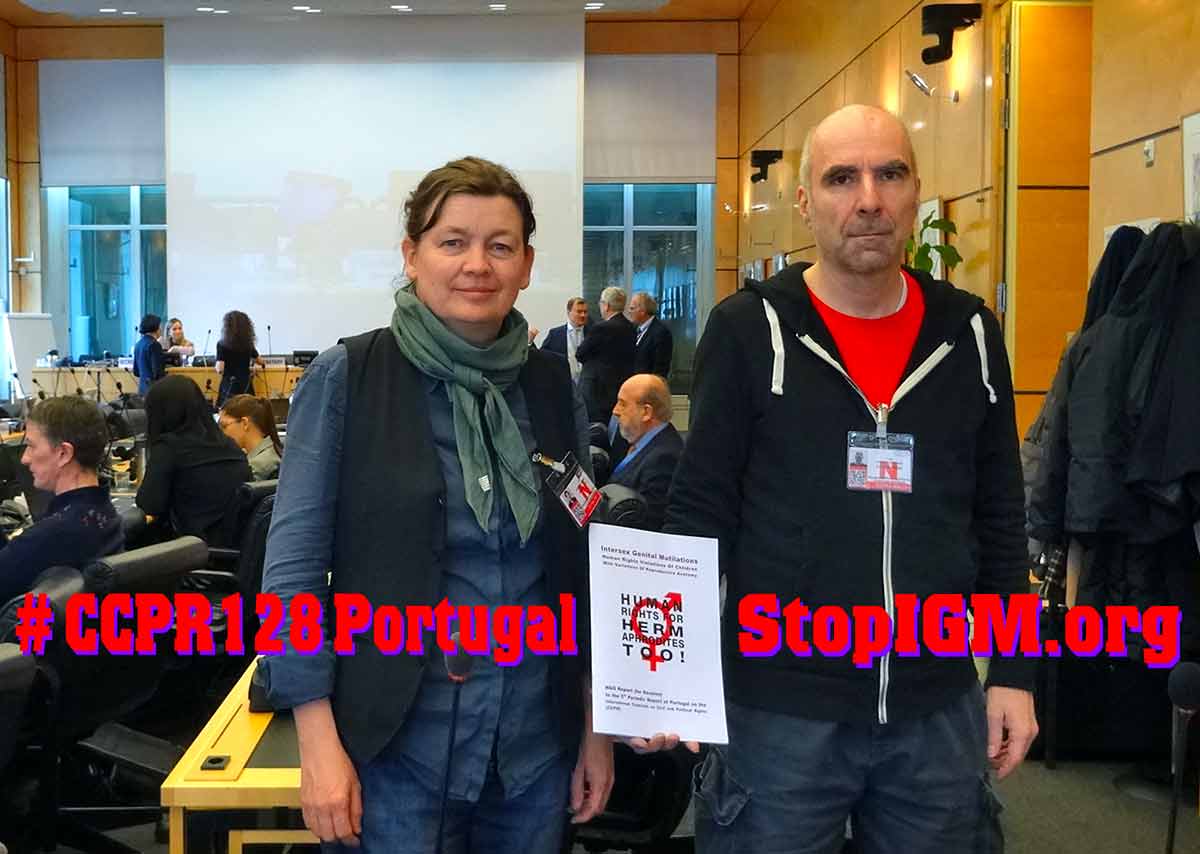 Photo: Daniela Truffer and Markus Bauer (StopIGM.org) with the thematic intersex NGO report on Portugal
Photo: Daniela Truffer and Markus Bauer (StopIGM.org) with the thematic intersex NGO report on Portugal